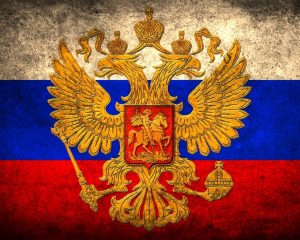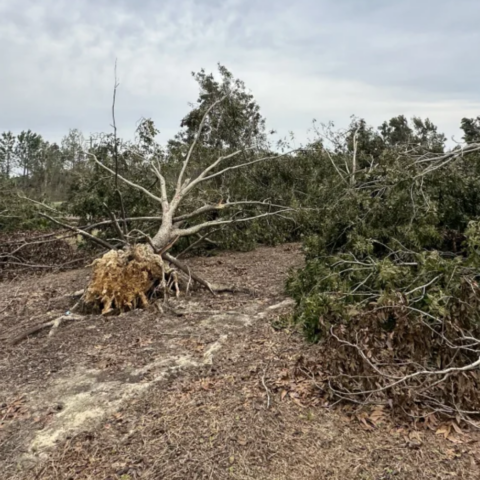By: Yuliya Bila

Photo Credit: http://www.1zoom.net
The United States is not the only proud nation in the world. From tiny Slovenia to burgeoning Brazil, a historic loyalty and profound love for the homeland endures regardless of the political or socio-economic situation. The grass may look greener on the other side, but home is ultimately where the heart is.
Russia is no exception. As a country that has spanned as much as one sixth of the earth’s landmass at the height of its power, Russia has long seemed destined for greatness. Though its development was stunted in the middle ages by several centuries of authoritarian Mongol rule, Russia bounced back with impressive vigor at the impetus of Czars such as Peter the Great. It went on to develop one of the most impressive national literatures, become renowned for its art, music and ballet, and produce some of history’s most influential scientists, engineers, and mathematicians. Russia even pioneered the grand socialist experiment, implementing with fierce force an ideology to rival that of the capitalist West and bringing a considerable percentage of the world’s population under its direct influence.
When that experiment fell apart in the early 1990s, Russian pride was dealt a severe blow. During the presidency of Boris Yeltsin, the country faced a series of economic shocks, food shortages, and massive emigration as it fell from superpower status to become a second-tier nation. It took a small-time KGB officer with strength, confidence, and an authoritarian strain to convince the country that it can, and should, regain its place of prestige in the international community once again.
Under Vladimir Putin’s leadership over the last twelve years, Russia has witnessed a revival. It may not produce the same high percentage of the world’s best scientists and engineers or act as the center of orbit for Eastern Europe and Central Asia, but Russia is still one of the largest nuclear powers and a permanent member of the U.N. Security Council. Its vast lands contain untold wealth in the form of oil and natural gas, and its standard of living is rapidly increasing. In fact, in cities such as Moscow and St. Petersburg, typical living conditions and public amenities are now comparable to those of Western European capitals.
This economic revival has been accompanied by a need to prove itself to the world. As a nation, Russia is tired of being forgotten, disregarded, and dismissed as a backwater country, incapable of taking care of itself or of having any influence over its neighbors. Russia’s foreign policy escapades in recent years illustrate this point quite clearly: whenever the world steps on Russia’s toes, it retaliates in a decisive, often brutal manner to warn the international community against provoking such a powerful country.
For example, when the United States and its allies began to vocalize their desire to expand NATO into Eastern Europe and potentially the Caucasus, contrary to previous agreements, Russia felt a direct threat to its national security. In August 2008, the northern giant invaded neighboring Georgia, a U.S. ally, under the pretext of protecting the sovereignty of the breakaway regions of South Ossetia and Abkhazia. The swift, five-day operation was planned and executed with the skill of a trained assassin; the world was caught completely off guard. Caught up in two wars in the Middle East and preoccupied with Iran and North Korea, the United States was unable and unwilling to come to its ally’s defense. The war succeeded in re-establishing Russia’s military preeminence and demonstrated to other would-be pro-Western countries within the former Soviet sphere of influence that the last fifteen years of Russia’s relative impotence were an aberration, not the new norm.
This message rang clear on Russia’s western border as well, where Russian relations with Ukraine soured considerably after the latter’s pro-Western Orange Revolution of 2004. During a series of disputes over natural gas prices, Russia’s state-owned gas monopoly Gazprom asserted its dominance in 2009 by cutting off all supplies of the heating fuel traveling through Ukrainian pipelines to European markets. Thus, in the middle of a particularly frigid January, countless European households were left without heat. Ukrainian politician Grigory N. Perepelitsa has called the gas crisis “a continuation of the Russian-Georgian war, only by other means. There it was tanks, here it is gas.” The pro-Western administration faltered and fell from power and relations with Moscow were normalized by the new coalition at the expense of Washington.
It would seem that after these two high-profile incidents, the U.S. would learn that it cannot expect to damage Russian pride with impunity. President Obama may have had an inkling of such a new order, as demonstrated by his initial reluctance to sign the Magnitsky Act. The proposed legislation amounted to a direct slap in the face of numerous Russian political figures who had been accused of human rights abuses; it froze their American assets and banned them from traveling to the United States. Tied to another piece of important legislation, however, the bill flew through the House and Senate and eventually received Obama’s stamp of approval.
Its reception in Russia was anything but approbatory. To have another country pass judgment on leading Russian figureheads upset quite a few people; from the upper echelons of society to the common workers influenced by mass media, Russia was crying foul. Some even went so far as to consider it a declaration of the Cold War’s frosty return.
Russia retaliated on Dec. 28 by passing a ban on adoptions of Russian orphans by American families. Citing the deaths of 19 Russian-born children who were adopted by Americans in the past decade, the Russian parliament approved of the law by massive margins as a way to prevent domestic abuse and international child trafficking. Such pretense, however, has fooled no one; the world is outraged over the blatant use of innocent children as pawns in a political game. Adoptions that were approved by Russian courts prior to the enactment of the ban on Jan. 1 will be allowed to continue. Other would-be parents and children will likely be left heartbroken.

A backlash of this severity may have been excessive, but based on Russia’s recent track record, it should not have been wholly unexpected. The era of U.S. hegemony is coming to a close, and while the eyes of the world have been fixated on China and the Middle East, the slumbering Russian giant has awoken and has begun testing its strength. The war with Georgia, cutting off natural gas supplies to Europe, and outwardly standing up to the United States with the adoption ban have been mere exercises in pushing the international community to see how far it will be allowed to go. Russia is capable of much more damage if it feels pushed around or backed into a corner.
While no country likes to have its pride injured, the United States must be especially mindful in our dealings with Moscow—especially since it seeks Russia’s cooperation on Syria, Iran, and Afghanistan. If American politicians are not more careful and judicious in the battles they choose to fight and the manner in which they choose to fight them, the US may inadvertently arouse Cold War tensions from their twenty-year dormancy and give the War on Terror a run for its money. Let’s not disregard the Russians quite yet; national pride is a powerful catalyst.

